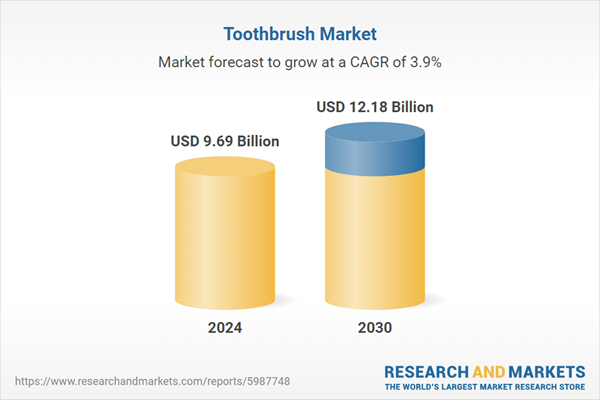Electric Toothbrush is the fastest growing segment, Asia-Pacific is the largest market globally
Speak directly to the analyst to clarify any post sales queries you may have.
10% Free customizationThis report comes with 10% free customization, enabling you to add data that meets your specific business needs.
Key Market Drivers
Growing oral health awareness significantly influences the global toothbrush market by directly shaping consumer behavior and increasing the perceived value of consistent oral hygiene. As populations become more informed about the link between oral health and overall systemic well-being, the demand for effective brushing tools rises. This heightened understanding drives consumers to seek products offering superior cleaning and protective benefits. According to the Delta Dental Plans Association, in May 2024, 91% of adults believe a dental visit is as important as an annual physical, reflecting a strong societal recognition of oral care's importance.Key Market Challenges
The pervasive presence of counterfeit products poses a significant impediment to the growth of the global toothbrush market. These illicit goods often replicate the appearance of reputable brands but consistently fail to meet established quality and safety standards. This discrepancy directly erodes consumer trust, as individuals who unknowingly purchase and use ineffective or harmful counterfeit toothbrushes may attribute negative experiences to legitimate brands. Such an undermining of confidence can lead to reduced brand loyalty and a reluctance to purchase even genuine products, thereby dampening overall market demand.Key Market Trends
The rising adoption of smart and AI-powered toothbrushes is significantly influencing the global toothbrush market by introducing advanced technology that offers personalized brushing experiences and real-time feedback. These devices leverage integrated sensors and artificial intelligence to meticulously analyze brushing technique, pressure, and coverage, providing users with actionable insights through connected applications. This emphasis on intelligent features enhances cleaning efficacy and empowers individuals to proactively improve their oral hygiene habits. Despite this innovation, a survey conducted by the American Dental Hygienists' Association in February 2024 indicated that 53.3% of dental hygienists had no exposure to dental AI technology, underscoring the substantial potential for increased professional integration and subsequent consumer adoption as awareness and training expand.Key Market Players Profiled:
- Church & Dwight Co., Inc.
- Colgate-Palmolive Company
- Unilever plc
- Conair LLC
- Den-Mat Holdings, LLC
- HRB Brands, LLC
- Koninklijke Philips N.V.
- Lion Corporation
- Panasonic Holding Corporation
- Shenzhen Risun Technology Co. Ltd.
Report Scope:
In this report, the Global Toothbrush Market has been segmented into the following categories:By Type:
- Manual Toothbrush
- Electric Toothbrush
By Bristles:
- Soft
- Medium
- Firm
By Sales Channel:
- Departmental Stores
- Hypermarkets/Supermarkets
- Pharmacies
- Online
- Others
By Region:
- North America
- Europe
- Asia Pacific
- South America
- Middle East & Africa
Competitive Landscape
Company Profiles: Detailed analysis of the major companies present in the Global Toothbrush Market.Available Customizations:
With the given market data, the publisher offers customizations according to a company's specific needs. The following customization options are available for the report:- Detailed analysis and profiling of additional market players (up to five).
This product will be delivered within 1-3 business days.
Table of Contents
Companies Mentioned
- Church & Dwight Co., Inc.
- Colgate-Palmolive Company
- Unilever plc
- Conair LLC
- Den-Mat Holdings, LLC
- HRB Brands, LLC
- Koninklijke Philips N.V.
- Lion Corporation
- Panasonic Holding Corporation
- Shenzhen Risun Technology Co. Ltd.
Table Information
| Report Attribute | Details |
|---|---|
| No. of Pages | 182 |
| Published | November 2025 |
| Forecast Period | 2024 - 2030 |
| Estimated Market Value ( USD | $ 9.69 Billion |
| Forecasted Market Value ( USD | $ 12.18 Billion |
| Compound Annual Growth Rate | 3.8% |
| Regions Covered | Global |
| No. of Companies Mentioned | 10 |









